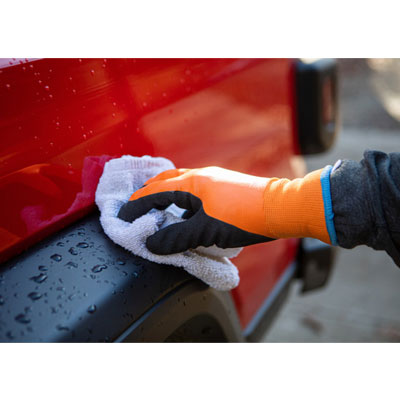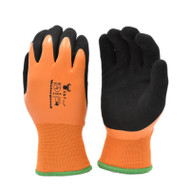Water-Resistant Work Gloves: How to Choose the Best
Apr 7th 2023
Water-resistant work gloves are gloves designed to protect the hands from water and other liquids while performing tasks in a wet environment. These gloves are typically made of materials such as neoprene, PVC, or nitrile, which are resistant to water and other liquids.
Water-resistant work gloves are important because they provide a barrier between the skin and liquids, preventing the skin from becoming waterlogged or coming into contact with harmful substances. This is particularly important for workers who are exposed to water, chemicals, or other liquids in their work environment, such as those working in the construction, agriculture, or marine industries.

In addition to protecting the skin, water-resistant work gloves can also provide grip and dexterity, allowing workers to perform tasks safely and efficiently. They can also help to prevent accidents and injuries by reducing the risk of slips, trips, and falls in wet conditions.
Water-resistant work gloves are an essential piece of personal protective equipment for workers in wet environments, providing protection, comfort, and functionality.
There are various kinds of water-resistant work gloves on the market. But how do you choose the best? Let's talk about it below:
How to choose water-resistant work gloves?
Choosing the right water-resistant work gloves depends on several factors such as the type of work you'll be doing, the level of water resistance needed, and personal preferences. Here are some tips to consider when choosing water-resistant work gloves:

Material: Look for gloves made from water-resistant materials such as neoprene, latex, or nitrile. These materials provide excellent water resistance and durability.
Coating: Consider gloves with a waterproof coating that will keep your hands dry. Gloves with a polyurethane coating or a PVC coating are good options.
Thickness: Choose gloves that are thick enough to provide adequate protection against water and other hazards. Thicker gloves may also provide more durability and abrasion resistance.
Grip: Look for gloves with a textured grip that will provide a secure grip on wet surfaces.

Size: Make sure to choose water-resistant work gloves that fit well and provide good dexterity. Gloves that are too loose or too tight can be uncomfortable and can interfere with your ability to work.
Certification: If you need gloves for specific work requirements or regulations, make sure they are certified for that specific use. For example, EN 388 certification for gloves protects against mechanical hazards.
By considering these factors, you can choose the best water-resistant work gloves that will provide you with the protection and comfort you need to get the job done.
Are you looking for high-quality water-resistant work gloves? Browse through our wide range of safety gloves.
